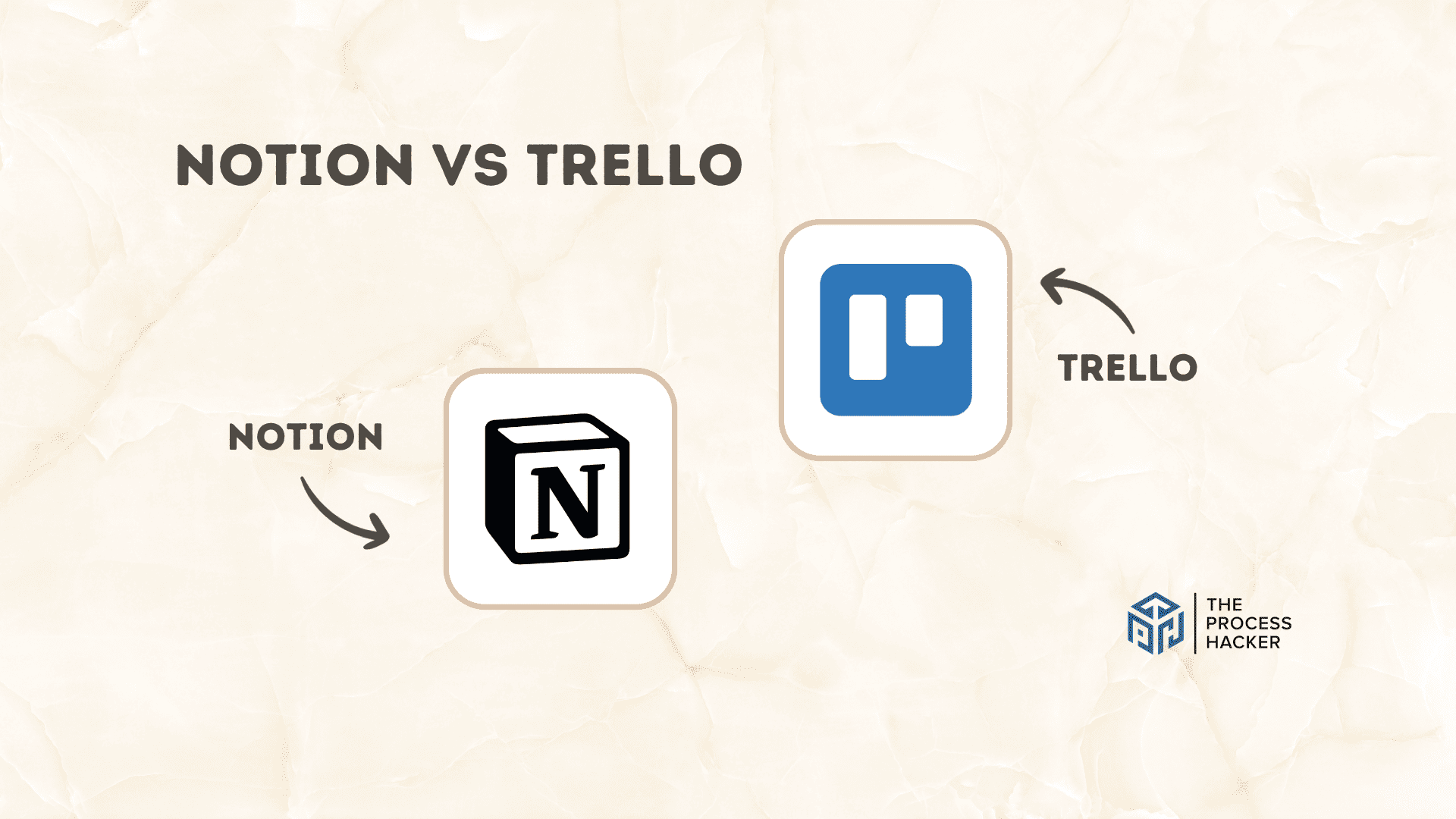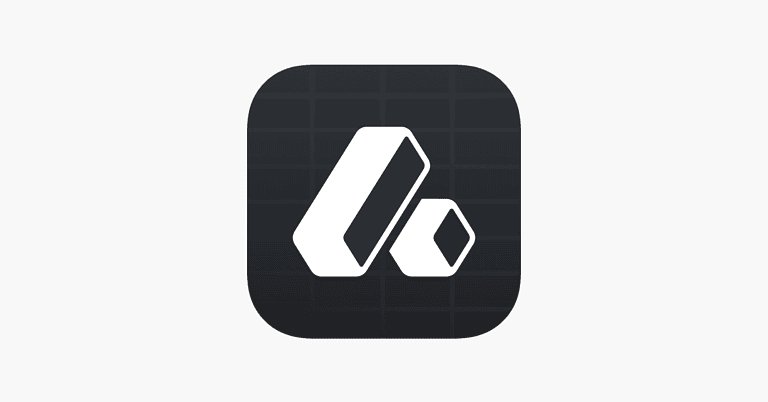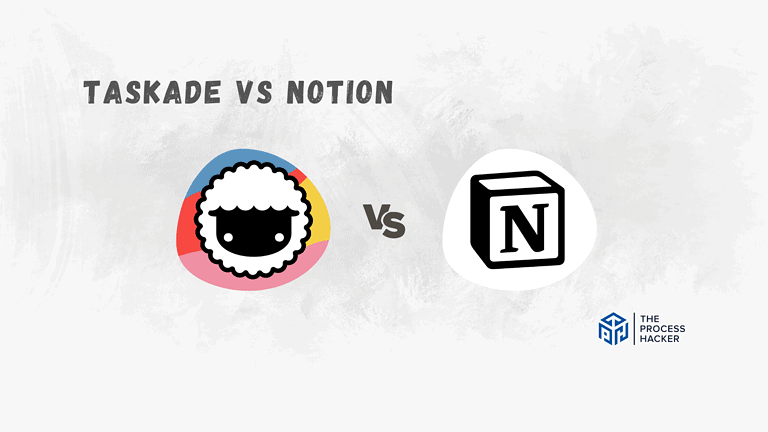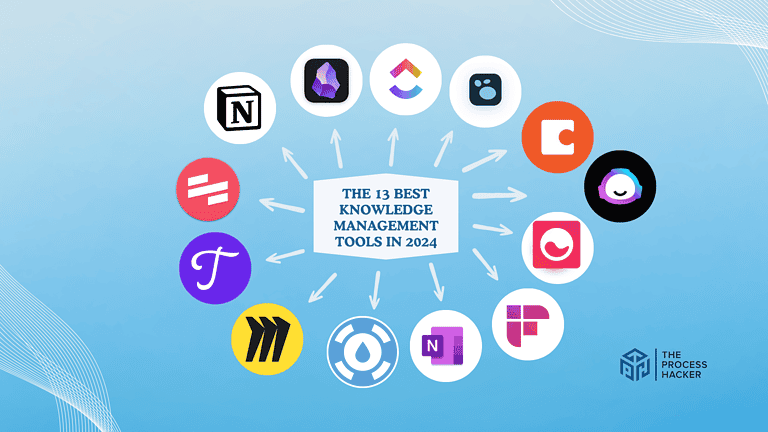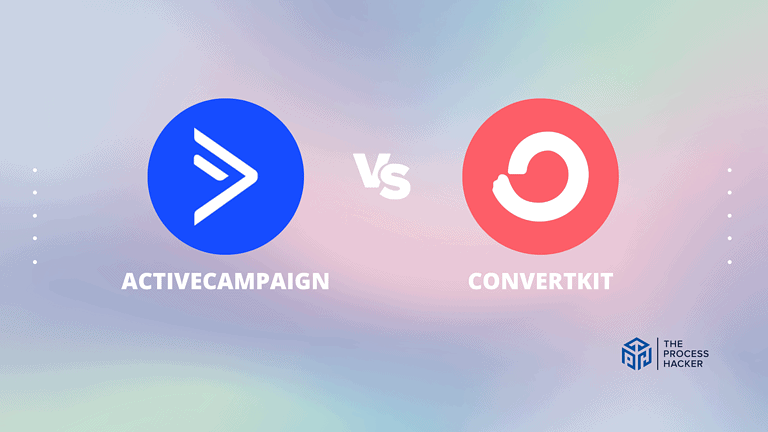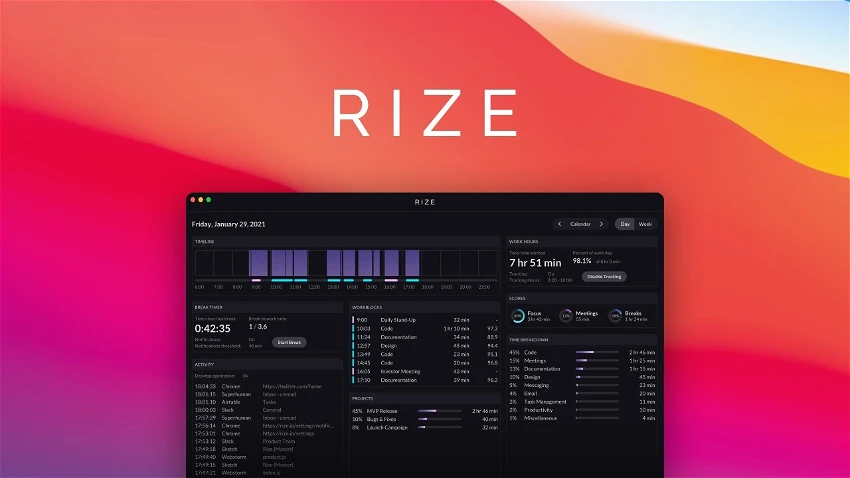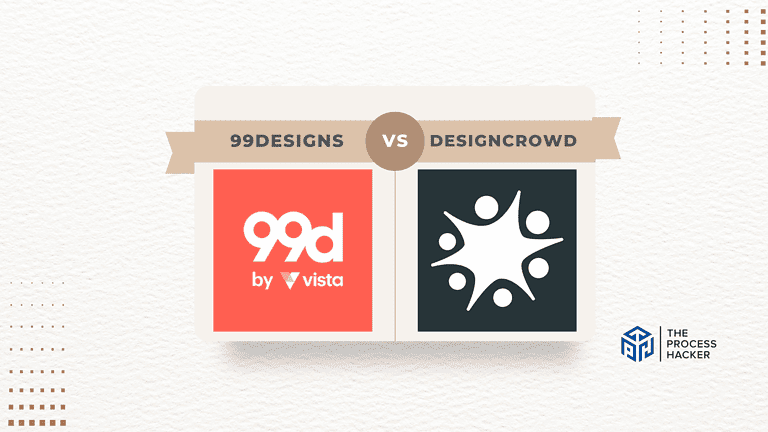Notion vs Trello: Which Project Management Tool is Better?
Do you ever feel like your business processes, projects, side hustles, and to-dos are getting the best of you? You’re not alone!
As an entrepreneur, it can be tricky keeping up with all of your tasks without using a project management system – and that’s where this Notion vs Trello breakdown comes in.
If you purchase through our partner links, we get paid for the referral at no additional cost to you! For more information, visit my disclosure page.
Today, I’ll provide you with the ultimate AI project management software comparison to see which is best for managing various complex projects.
So, if you’re ready to find out which tool will help organize your life and improve productivity – grab a cup of coffee (or tea!), and let’s dive into this comparison!
Brief Overview: Notion vs Trello
First, I’ll give you a quick overview of Notion and Trello:
Notion
Notion is an all-in-one workspace where you can write, plan, collaborate, and organize. It combines notes, tasks, daily plans, wikis, and databases to provide a comprehensive, all-in-one software solution for project management, timeboxing, documentation, and more. It’s highly customizable, allowing for a unique workflow tailored to individual or team needs. This is also considered one of the best LinkedIn automation tools in the market.
Key Selling Points:
- Versatile Workspace: Integrates notes, tasks, wikis, and databases
- High Customizability: Tailors to specific workflow and team needs
- Integrated Collaboration Tools: Enables seamless teamwork and sharing
- Rich Media Support: Embeds images, bookmarks, code snippets, and more
- Extensive Template Options: Offers a variety of pre-made templates for quick setup
- Cross-Platform Compatibility: Available on multiple devices and operating systems with robust security features
Trello
Trello is a visual project and time management tool that uses boards, lists, and cards to organize tasks and projects. It is intuitive and user-friendly, focusing on simplifying project tracking and collaboration. Trello is great for individuals and teams seeking a straightforward, kanban-style task management system.
Key Selling Points:
- Visual Project Management Software: Utilizes boards, lists, and cards for task organization.
- Intuitive Interface: Easy to use with a minimal learning curve.
- Customizable Boards: Personalize boards with various backgrounds and stickers.
- Robust Integrations: Connects with other apps like Slack, Google Drive, and more.
- Real-Time Collaboration: Facilitates team communication and task tracking.
- Mobile Accessibility: Offers full functionality through its mobile app.
Quick Verdict: Notion vs Trello
Ideal for those who need a multifaceted platform, Notion excels in handling a wide range of tasks – from AI-powered note-taking and database building to project tracking. Its standout feature is its deep customizability, allowing you to tailor almost every aspect of your workspace.
This makes it perfect for teams or individuals who require a highly personalized system, integrating various components like notes, tasks, and wikis. Notion’s richness in all the features makes it a go-to for those who need more than just a task manager.
Trello is the epitome of simplicity and user-friendliness in managing tasks. Its kanban-style boards are ideal for visual thinkers and those who prefer a straightforward, drag-and-drop interface.
This makes it an excellent choice for small teams and individuals looking for an easy-to-use productivity tool to track project progress and manage time and tasks efficiently. Trello’s strength lies in its clarity and simplicity, offering just enough features without overwhelming its users.
Product Overview: Notion vs Trello
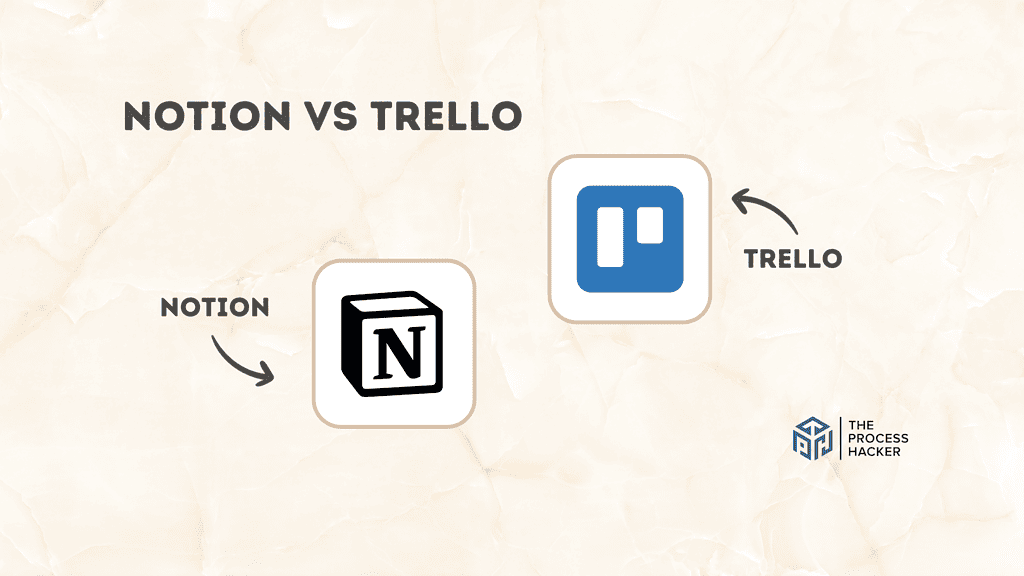
What is it?
Notion is an all-in-one workspace where you can write, plan, collaborate, and get organized. It allows you to take notes, add tasks, manage projects, and create personal or work-related databases. Recipe lists, business or personal trip plans, grocery inventory, project timelines, team tasks—whatever you need planning, Notion can help you stay organized and efficient.
On the other hand, Trello is a web-based project management application designed with a board-and-card system for organizing and prioritizing projects flexibly and rewardingly.
Who is it for?
Notion is ideal for teams seeking a comprehensive tool that merges note-taking, managing tasks, wikis, and databases into one platform. It’s also great for individuals who want an all-in-one workspace. That is why Notion is dubbed as one of the best knowledge management tools in the market.
Trello is perfect for teams who prefer a visual overview of their projects and individuals who want a simple, intuitive way to manage their tasks and to-do lists.
What makes it special?
Notion sets itself apart with its versatility and deep customization capabilities. It’s more than just a task manager; it’s a modular workspace that adapts to your specific needs, allowing for detailed organization of information, from notes to complex databases. That’s why it is dubbed as one of the best AI tools for college students.
Trello stands out due to its simplicity and visual approach to managing tasks. Its use of boards and cards to represent tasks and workflows makes it exceptionally user-friendly, offering a clear and concise overview of projects at a glance.
What does it do?
Notion is a multi-faceted tool that allows you to create and manage notes, build databases, track projects, and collaborate in real time. Its flexible structure supports various integrations and templates, making it an adaptable tool for different project types.
Trello simplifies project management through its kanban-style boards. You can create boards for different projects, add lists representing stages or categories, and use cards for individual tasks. Its drag-and-drop functionality makes it easy to update and track the progress of tasks.
Quick Comparison: Notion vs Trello
| Key Features | Notion | Trello |
|---|---|---|
| #1) Pricing | Winner | |
| #2) Free Plan | Winner | |
| #3) Design & Functionality | Winner | |
| #4) Project Management | Winner | |
| #5) Task Management | Winner | |
| #6) Collaboration Tools | Winner | |
| #7) Kanban Boards | Winner | |
| #8) AI Assistant | Winner | |
| Overall | Winner |
Feature Comparison: Notion vs Trello
Let’s compare Notion and Trello as project management tools so you can make the right decision for you and your business automation needs.
#1) Pricing
Notion’s pricing begins at $10 per month for the Plus Plan, which offers a comprehensive array of features suitable for individual use and small teams. Notion provides Business and Enterprise Plans for larger teams or organizations with more advanced features and support.
Trello, in contrast, starts its pricing at $6 per month for the Standard Plan. While offering a lower starting price, Premium and Enterprise Plans are available for those needing more advanced features and extensive team management options.
While Trello’s starting price is lower, Notion’s Plus Plan offers robust features that may provide more value for your money, depending on your specific needs. If getting the most features for a slightly higher cost is important to you, Notion is the better choice.
Verdict: Notion comes out ahead for pricing due to the comprehensive feature set it offers, starting from the Plus Plan.
#2) Free Plan
Notion offers a free plan with various features, including unlimited pages and blocks, sharing with five guests, and syncing across devices. It’s an excellent way to get started with the platform and explore its capabilities without any financial commitment.
Trello also offers a free plan, allowing you to create unlimited personal boards, cards, and lists. However, it does limit the number of team boards you can have and the workflow automation commands you can run.
While both offer solid options for getting started without any upfront cost, Notion’s free plan stands out due to its unrestricted access to core features like unlimited pages and blocks.
Verdict: For the free plan, Notion is the better choice.
#3) Design & Functionality
Notion offers a highly customizable design that supports a wide range of functionality. Its interface may seem old-school to some, but switching between features is easy, making it quite user-friendly—additionally, Notion levels up the process with endless customization tools and shareable docs.
On the other hand, Trello’s design is more optimized and simplistic, perfect for smaller projects. Its core strengths lie in its Kanban board system and affordability. However, unlike Notion, it offers a more structured approach to managing tasks.
When it comes to design and functionality, both platforms have their strengths. But if you’re looking for a tool with broader capabilities and customization options, Notion is the better choice because Trello has a steep learning curve.
Verdict: For design and functionality, Notion is the winner.
#4) Project Management
Notion takes project management to another level with its flexibility and extensive feature set. It allows you to create workflows, track information, and codify team-specific processes. Plus, it’s not just a project management tool; you can use it for a wide range of functions, making it a comprehensive workspace platform.
Trello shines in its simplicity and functional Kanban-style project management solution. It’s ideal if you’re looking for a straightforward tool for managing tasks and tracking progress. However, compared to Notion, it offers a more limited scope of functionality.
When it comes to project management, both platforms have their strengths. But if you’re looking for a tool that offers more than just project management and provides a complete workspace, Notion is the better choice.
Verdict: For project management, Notion is the better choice.
#5) Task Management
Notion provides a flexible platform for managing tasks, allowing you to create custom workflows that suit your needs. You can add different types of content automation to your tasks, such as text, images, and files, and view them in various formats like lists, tables, or Kanban boards.
In contrast, Trello specializes in managing tasks. Its card-based system is simple yet effective, making it easy to organize tasks, assign them to team members, and track their progress. Trello’s simplicity and visual approach to managing functions make it stand out.
While Notion offers more versatility, Trello’s simple and intuitive design makes managing tasks a breeze. If managing tasks is your primary concern, Trello is the better choice.
Verdict: For managing tasks, Trello takes the win.
#6) Team Collaboration Tools
Notion offers robust collaboration tools to help teams work more effectively. It allows you to share pages with team members, leave comments, and assign tasks directly within the platform. Its integrated workspace features mean you can create a central hub for your team’s needs.
Trello, on the other hand, also provides a solid platform for team collaboration. You can easily assign tasks, add comments, and attach card files. However, it may offer different integrated workspace features than Notion.
While both platforms provide great collaboration tools, if you’re looking for an all-in-one workspace that combines collaboration in managing projects and tasks, Notion is the better choice.
Verdict: For collaboration, Notion is the top pick.
#7) Kanban Boards
Notion’s Kanban boards are highly customizable for AI marketing. You can adjust them to fit your requirements, from simple task tracking to complex project management. The flexibility goes beyond just moving cards around; you can also add different types of content creation to each card.
Trello, on the other hand, specializes in Kanban boards. Its simple and intuitive system makes it easy to visualize workflows and track progress. Each card on a Trello board represents a task, and you can add detailed information, assign team members, and attach files directly onto the cards.
While both tools offer competent Kanban boards, Trello’s specialty lies in this area. Trello is your top choice if you’re looking for a tool focusing on clear, effective, and easy-to-use Kanban boards.
Verdict: For Kanban boards, Trello comes out on top.
#8) AI Assistant
Notion’s AI assistant, “Just Ask Notion AI,” stands out for its versatility. Its AI SEO tool can help with a wide range of questions and assist in writing tasks directly within your workspace. Additionally, it can turn large databases into actionable insights, which is a significant advantage for data-heavy projects.
Trello offers “Notes & Docs,” an AI-powered workdocs feature that enhances the note-taking process within your projects. This integration of ChatGPT AI technology streamlines your workflow by making documenting and organizing information more efficient and intuitive.
Notion and Trello offer robust AI assistants but serve slightly different purposes. Notion’s superior AI focuses on providing broad assistance and insights from large datasets, making it highly suitable for complex project management scenarios. In contrast, Trello’s AI, focusing on enhancing note-taking and documentation, is ideal for projects where efficient information organization is key.
Verdict: For comprehensive AI capabilities, Notion is the better choice.
Final Thoughts on Notion vs Trello
After hours of research and testing, Notion and Trello are powerful project management tools with unique strengths.
Trello shines with its straightforward, Kanban-style management of tasks and customization options. It’s a reliable choice if you’re looking for a focused tool to manage your tasks and projects.
Notion goes beyond just project management. It offers a more flexible and extensive feature set, including AI assistance, customizable templates, and the ability to turn databases into actionable insights. Its versatility makes it a comprehensive workspace that can adapt to your changing needs.
While both tools offer significant benefits, Notion is a better project management tool!
If you’re looking for a versatile tool that can handle more than just project management, Notion is the better choice. You can build an incredible workspace tailored to your requirements.
So, go ahead and try Notion for free right now! See how Notion will give your project management the boost it needs – it is the game-changer you’ve been waiting for!

